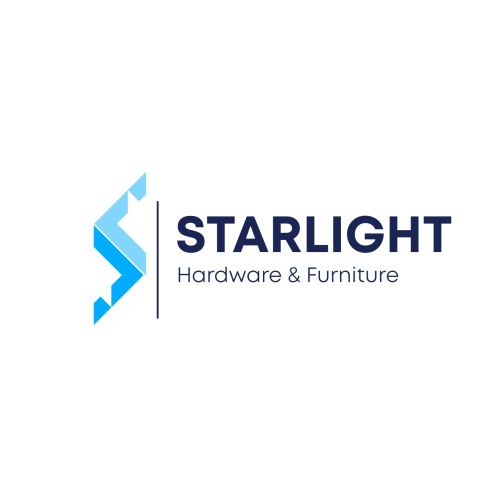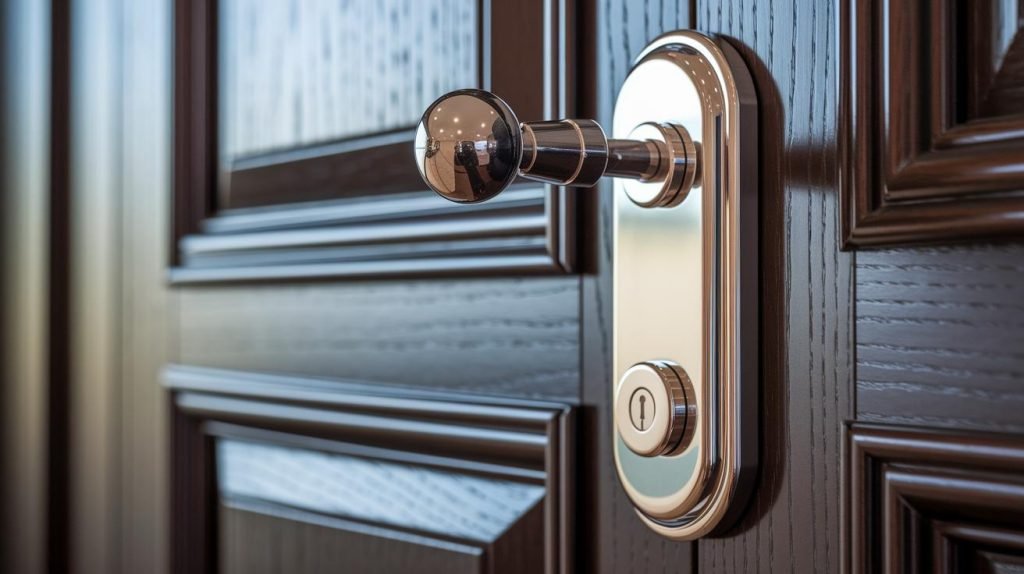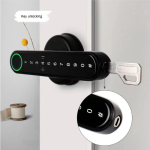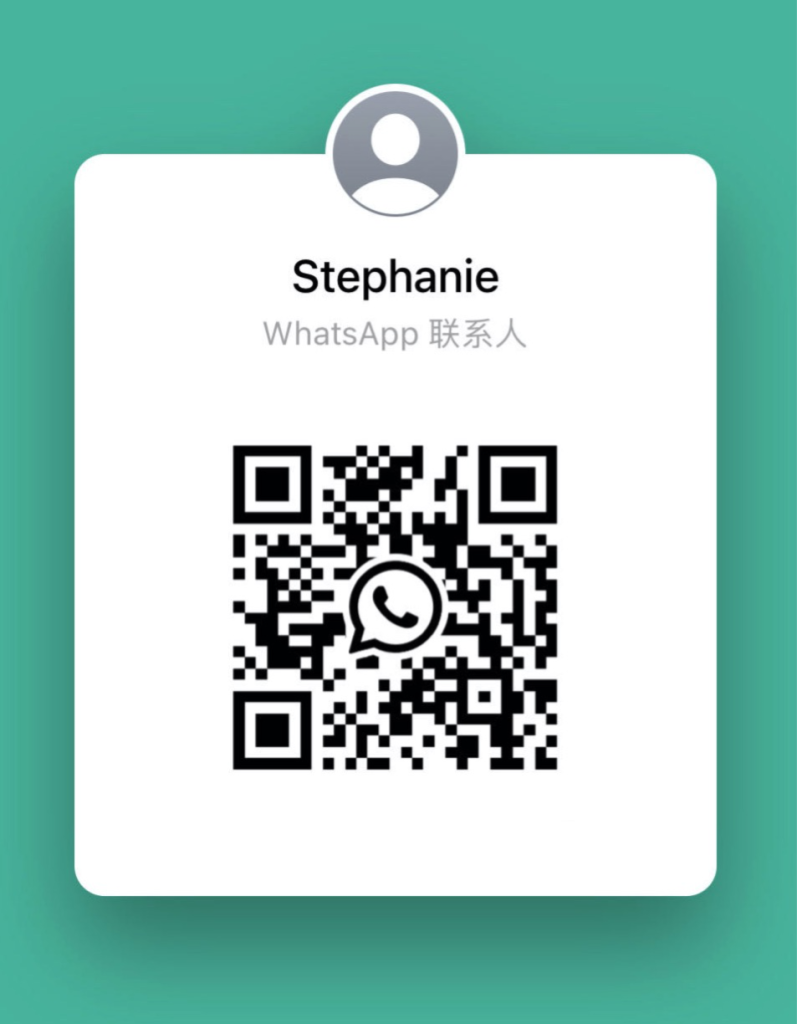Ever punched in a code and felt like you’re playing lockout roulette?
We gathered five top password door lock makers, then put their flagship models through a real-world test.
Picture your fingertip gliding across the smooth metal faceplate.
A soft LED glow (a low-power light that shows it’s ready) greets each tap.
Then that reassuring click as the bolt slides home.
We graded each lock on build quality, battery life, and tamper resistance (how well it fights forced entry).
Um, for tamper testing we tried picking, bumping, and prying on every model.
You’ll see which lock truly delivers lasting security.
Comparing Leading password door lock manufacturers
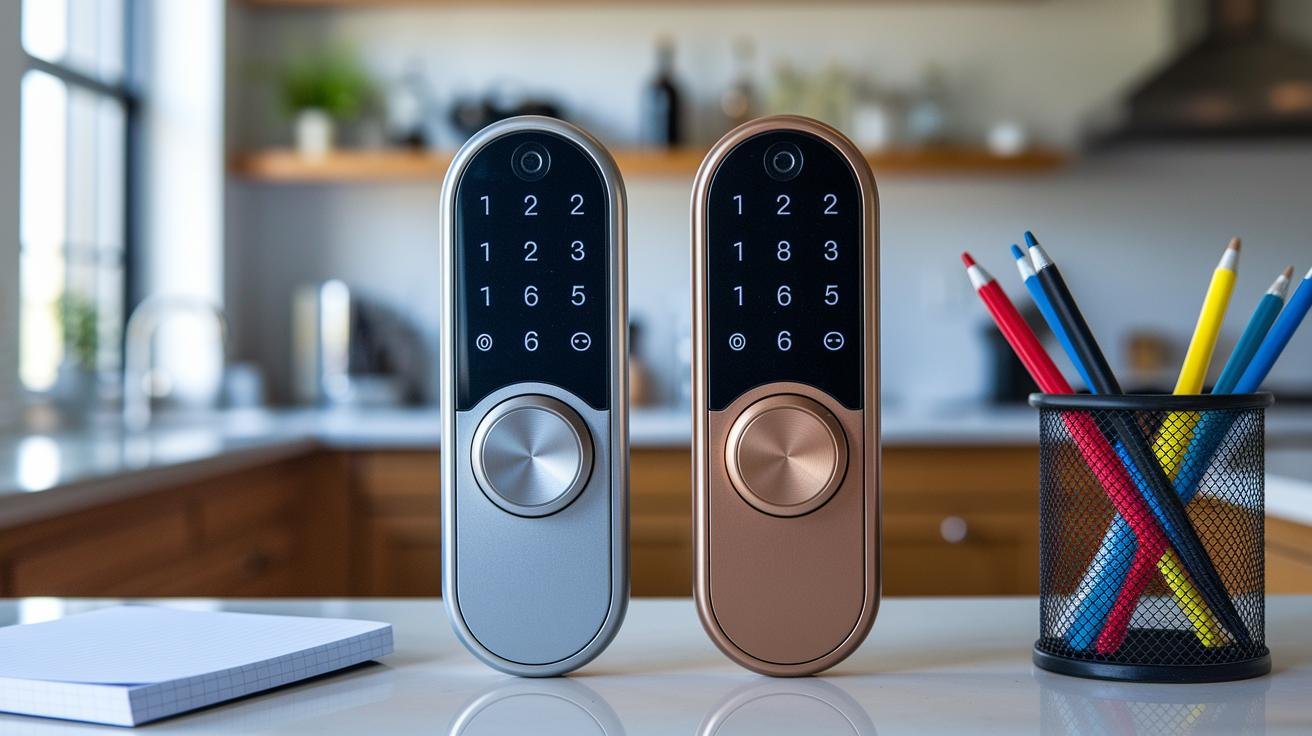
Ever hit a lock keypad and wonder which one holds up best? We lined up ten top password locks side by side. Picture the smooth metal faceplate, the soft LED glow, and that reassuring click when you punch in your code. Here’s a quick look.
We’ll show each maker’s flagship model, its security grade (ANSI standard), how long the batteries last, how it connects, and the price tag. Ready? Let’s dive in.
| Manufacturer | Flagship Model | Security Grade | Battery Life | Connectivity | Price Range |
|---|---|---|---|---|---|
| Schlage | Encode Smart WiFi Deadbolt | ANSI Grade 1 | 6 months | Wi-Fi | $150–$200 |
| Kwikset | Halo Select | ANSI Grade AAA | 12 months | Thread or Wi-Fi | $280–$300 |
| Yale | Assure Lock 2 | ANSI Grade 2 | 4–12 months | Bluetooth, Wi-Fi, Z-Wave | $200–$250 |
| August | Wi-Fi Smart Lock | ANSI Grade 2 | 2–3 months | Wi-Fi | $140–$180 |
| Samsung | SHP-DP727 | ANSI Grade 1 | 6–12 months | Bluetooth | $200–$300 |
| ASSA ABLOY | EL590 | ANSI Grade 1 | 12 months | NFC | $300–$400 |
| Lockly | Vision Elite | ANSI Grade 1 | 8 months | Wi-Fi, Bluetooth | $350–$450 |
| Eufy | FamiLock S3 Max | ANSI Grade 1 | 5 months | Wi-Fi | $350–$400 |
| Level Lock | Level Lock Plus | ANSI Grade 2 | 12 months | Apple Home Key, Thread | $330–$350 |
| HomeShield Smart | HS-1000 | ANSI Grade 2 | 6–10 months | AI-driven, Wi-Fi | $180–$250 |
password door lock manufacturer product specifications
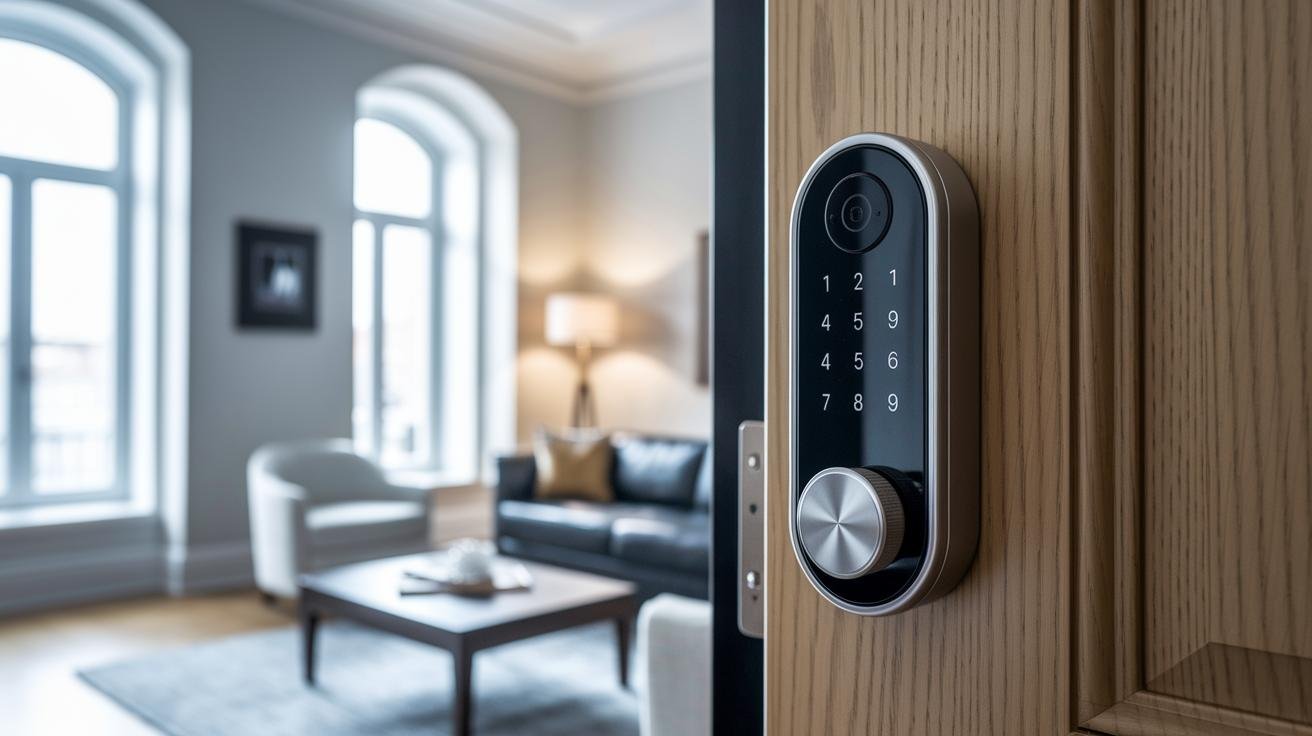
Password door lock manufacturers are your go-to resource for digital door hardware. They make keypad access devices that fit both homes and businesses. You’ll feel the smooth metal faceplate under your hand. And a soft LED glow guides your finger to the right spot.
- Multiple unlocking methods: PIN keypad (numbered buttons you press), smartphone app control, biometric fingerprint reader (reader that checks your unique fingertip pattern), facial recognition (camera-based ID), NFC fob tap, and voice commands.
- Security ratings: ANSI/BHMA Grade 1 (top commercial strength) and Grade 2 (residential and light commercial). Both pass pick and torque resistance tests.
- Battery life: Wi-Fi-enabled locks last about 3 to 6 months on AA or lithium cells. Bluetooth-only models stretch up to 12 months. Thread-enabled designs promise around a year but need a Thread border router.
- Auto-lock and unlock functions: GPS (your phone’s location), Bluetooth handshake, or Wi-Fi ping can trigger the motor for hands-free entry. Want to know a secret? Auto-lock mode is a game-changer.
- Tamper alarms: built-in sensors sense jostling or forced entry attempts. Then they set off a loud siren.
- Audit-trail logs: the lock records each entry and exit with a timestamp so you can review it later.
- Emergency power ports: USB-C or a 9V battery terminal lets you kick-start a drained lock in seconds.
- Over-the-air firmware updates: push security patches and feature upgrades without a screwdriver.
Smart-home integration ties it all together. Ask Alexa to lock the door or check status in Apple HomeKit. Matter and ultra-wideband support are on the rise, too. You pick the ecosystem, and the lock plays along.
Certifications and Standards for password door lock manufacturers
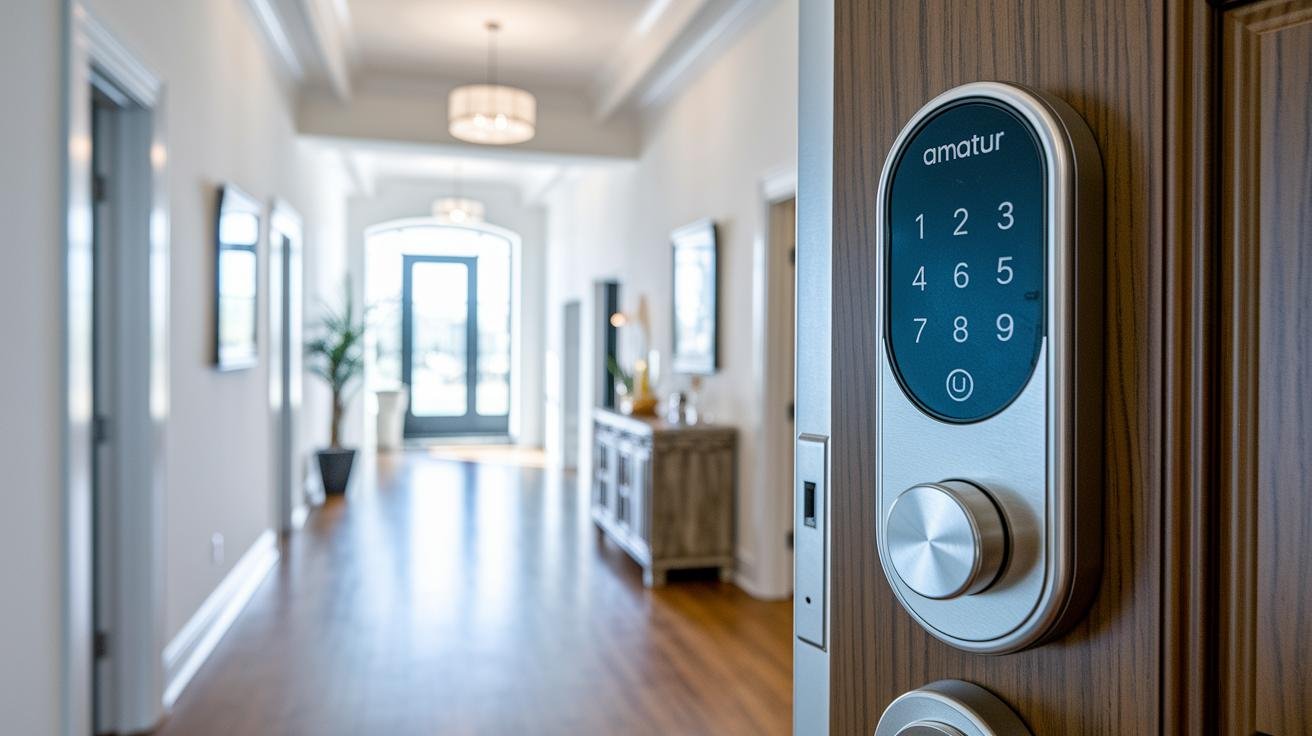
Every lock we make wears these badges like a stamp of trust. They show you the lock on your door is ready for real-world use.
- ANSI/BHMA Grade 1 & 2: These badges mean the lock aced pick resistance tests. That shows how tough it is to pick the lock. It also passed torque strength tests (how hard it is to twist). Solid.
- UL 294: This Underwriters Laboratories standard covers access control systems. It checks performance, reliability, and electrical safety. You get that reassuring click every time, minus any sparks.
- CE marking: This mark means we hit European Union health, safety, and environmental rules. It keeps your shipments moving fast, no customs headaches.
- RoHS compliance: We skip harmful chemicals like lead and mercury in our builds. It’s safer for your family and kinder to the planet.
- IEC 62471: This global standard covers optical radiation safety. It applies to fingerprint sensors (a reader that checks your unique fingertip pattern) and camera-based readers. It gives you peace of mind when you scan your finger.
When you see these marks, you know our locks passed every test. They sailed through pick, torque, and electrical checks. They’re ready for homes in the U.S. or for offices in Europe. Now you can focus on what matters – security.
OEM and Customization Options from password door lock manufacturers
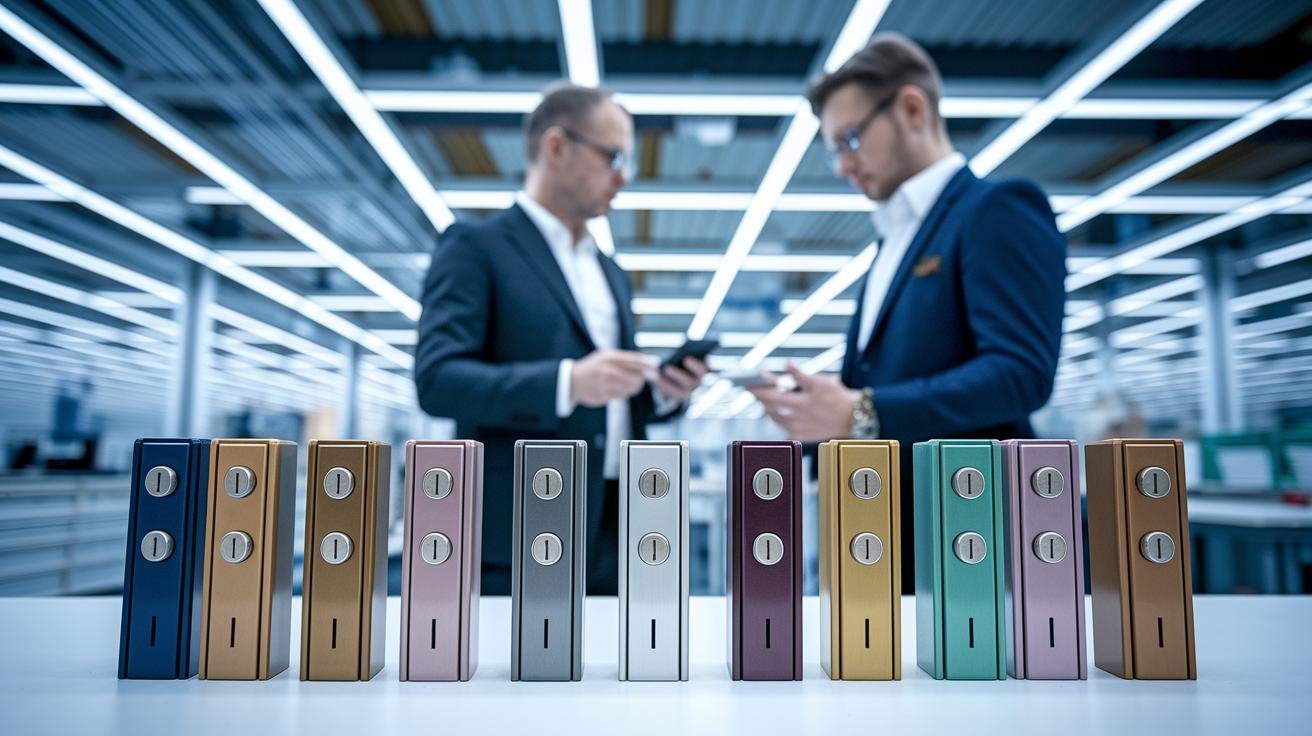
Imagine skipping the full build but still selling a lock under your name. Many brands act as OEM contract lock manufacturers. They send you a ready-made kit with hardware and firmware options. You just add your brand.
-
Private-label branding
Add your logo to the smooth metal faceplate and on the packaging. Pick a custom box design, insert cards, and user guide text that match your brand voice. -
Finish and material choices
Pick a smooth powder-coat color, a brushed stainless steel look, or zinc-alloy plating. You can even choose a textured coating for busy lobbies or salty sea air. -
Firmware and API tweaks
Adjust lock logic, tweak the audit-trail format (how events get recorded), or set up custom notification triggers. Want deeper system integration? Check our smart lock factory for OEM/ODM projects. -
Audit-trail and feature options
You can choose how often the lock logs activity, fine-tune tamper-alarm sensitivity, or add a dual-unlock mode. Decide what events trigger alerts, how long logs stick around, and your export format. -
Packaging, samples, and shipping
Order a sample lock in as little as two weeks. Minimum orders start at 100 units. Choose just-in-time delivery, bulk shipping, or drop-shipping straight to your customer.
From private-label branding to full system integration, these five options let you test and refine before you commit to a big order.
Short lead times. Flexible minimum orders.
Pricing Structures, MOQs, and Lead Times for password door lock manufacturers
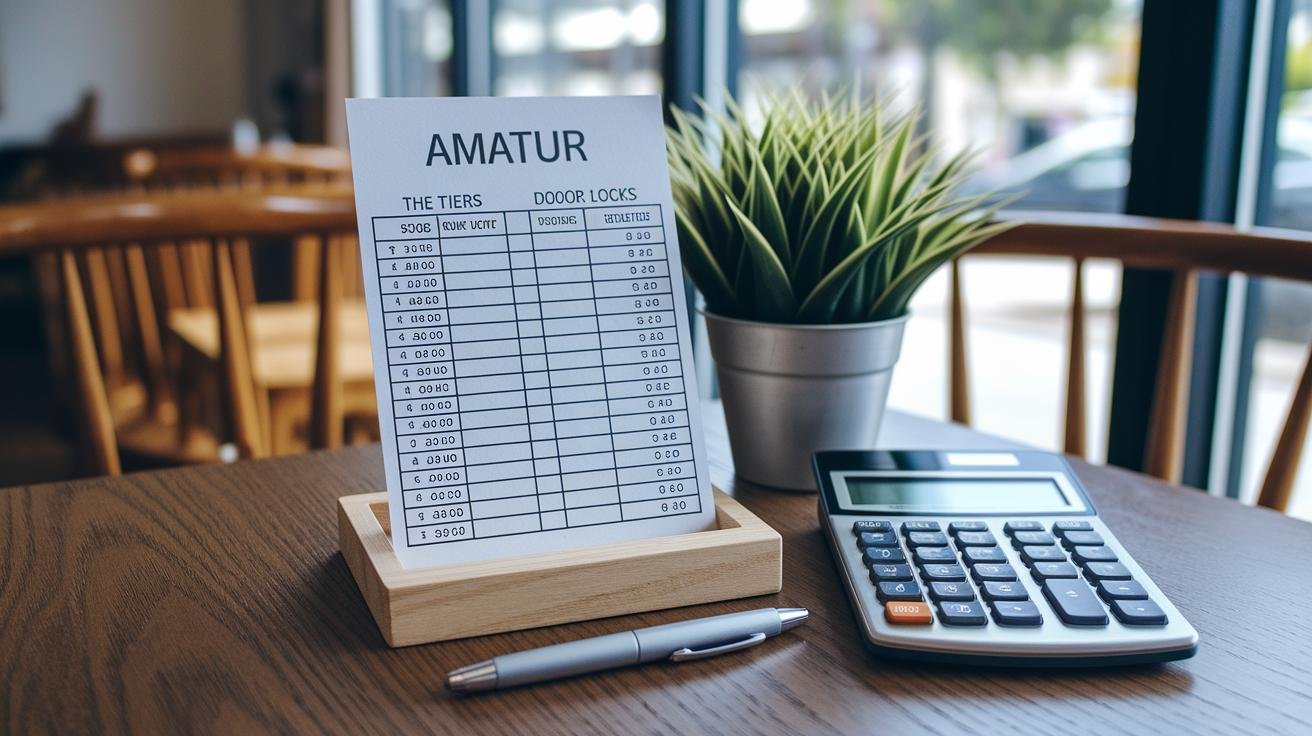
Um, whether you’re upgrading to a mobile-friendly retrofit lock or swapping in a full deadbolt replacement, prices shift with the features you choose. Let’s break down how budget, mid-range, and premium tiers stack up when you buy wholesale keyless entry devices.
| Tier | Price Range | MOQ (min. order quantity) | Lead Time |
|---|---|---|---|
| Budget | $60-$100 | 100 units | 4-6 weeks |
| Mid-Range | $130-$230 | 250 units | 4-6 weeks |
| Premium | $279-$400+ | 500 units | 4-6 weeks |
Hunting for a low MOQ (minimum order quantity)? Most brands set it between 100 and 500 units, so you can test the market without a huge outlay. Budget locks are perfect for simple installs and basic security.
Mid-range models often include biometric fingerprint sensors (a reader that checks your unique fingertip pattern) or Wi-Fi connectivity for remote access. Premium locks pack multi-modal biometric sensors (like fingerprint and facial recognition) or UWB (ultra-wideband, a short-range radio technology).
Volume discounts start kicking in as your order grows. You’ll get about 5-10 percent off mid-range locks at 1,000 units. Premium models drop by 8-12 percent once you hit 500 units. Those savings really add up when each lock normally costs north of $350.
Need your locks on the fast track? Expedited production comes with a 10-20 percent rush fee and slashes lead times to just 2-3 weeks. You can also lean on just-in-time supply (shipping units as they’re used) to avoid bulky stockpiles. It’s a neat trick for keeping your inventory lean.
With clear price tiers, flexible MOQs, and custom timelines, planning installs for homes, offices, or hotels feels surprisingly straightforward.
Customer Case Studies with password door lock manufacturers
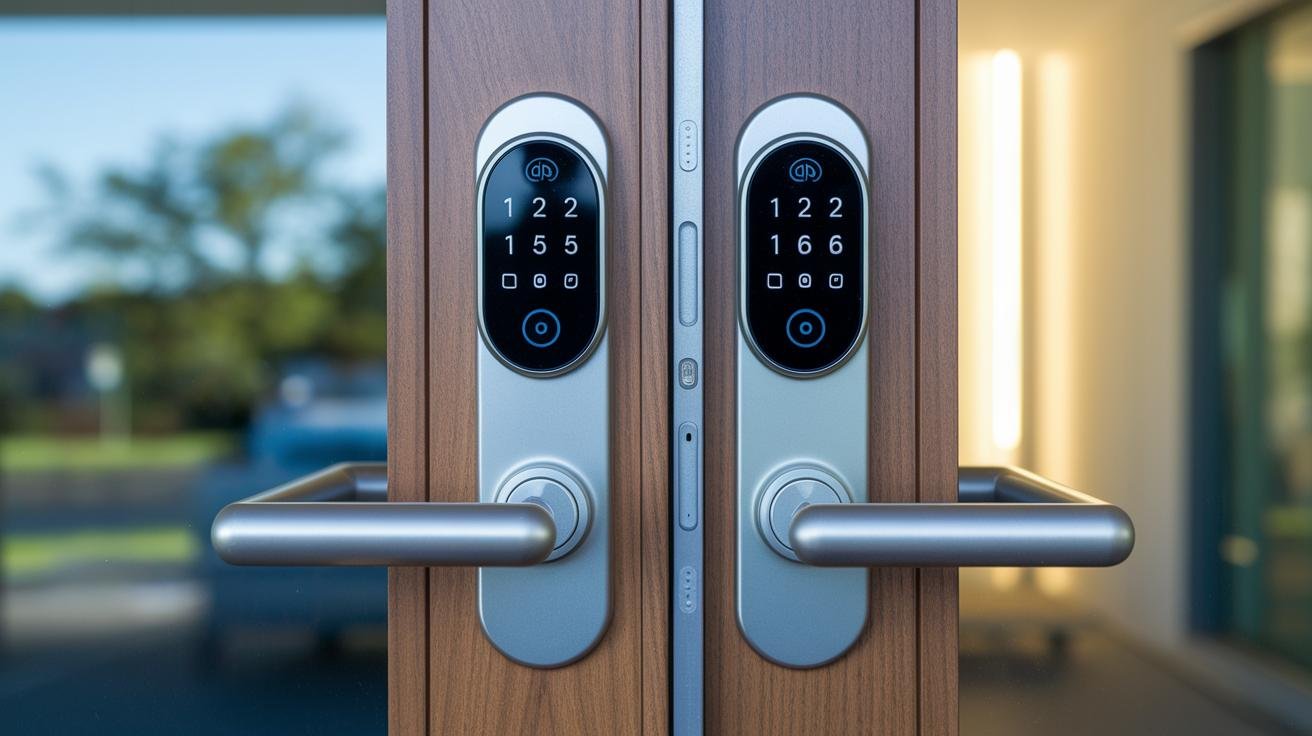
HostEase Rentals was wrestling with late check-ins and missing keys. Every time a guest arrived after hours or lost their key, they had to call a locksmith or swap out the cylinder. Costs piled up. The manager spent hours juggling a heavy key ring.
So they installed a multi-user code lock on each door. Using the smart lock for rental property system, they generated one-time PINs that expired at checkout. No more hiding keys under mats. No more emergency service calls.
Three months later, HostEase saw rekey costs drop by 80 percent. Guests loved the smooth self check-in, no awkward key handoffs. The team reclaimed hours once lost chasing spare keys.
Boutique Bliss Hotel had its own headaches. Front-desk staff still carried a big bunch of master keys, and nobody knew who’d entered which room or when. Security audits looked like a mess of handwritten logs and sticky notes.
They teamed up with an audit-trail smart lock maker to sync door locks with their property management software. Each staff code, cleaning, maintenance, or manager, logged a timestamp and operator name. The lock’s smooth metal faceplate even glowed red and sent an alert if someone tried forced entry or used an expired PIN.
Within weeks, Bliss Hotel enjoyed clear security logs instead of scribbled notes. Guest complaints about missing items dropped. Housekeepers stuck to their schedules with precise access windows. Check-in lines? Vanished.
Requesting a Quote from a password door lock manufacturer

Let’s start by revisiting the product specs. Ask for datasheets and a sample unit so you can touch the smooth metal faceplate, feel the crisp keypad click, catch the soft LED glow, and test battery life in your own space.
Next up is OEM (original equipment manufacturer) and customization. Confirm contract terms, explore branding options, chat about firmware tweaks, and double-check required certifications like CE or FCC.
And then comes pricing and lead times. Get your minimum order quantity (MOQ) clear, set up a payment schedule that suits you, and pick a shipping method. Aim for flexible lot sizes and solid delivery windows, no guessing games.
Back to our quote process: for more details, see the detailed specs, OEM guidance, compliance checklist, and MOQ/pricing discussion above.
Final Words
In the action, we compared top brands side by side, from battery life to security grades. Then we dove into detailed specs – unlock methods, connectivity, and smart home links. Next, certifications showed why ANSI, UL, CE matter. OEM options and customization tiers followed, plus pricing tables, MOQs, and lead times.
We even shared real-world case studies: Airbnb hosts and boutique hotels benefiting from audit trails and one-time PINs. Finally, we guided you through a clear RFQ process. With this as your guide, choosing a reliable password door lock manufacturer feels straightforward and promising.
FAQ
Which company makes the best door locks?
The best door locks come from Schlage, Kwikset, Yale and August, thanks to top security ratings, sturdy metal builds, and simple user features.
Who is the manufacturer of Kwikset?
The manufacturer of Kwikset is Spectrum Brands Hardware & Home Improvement. They design and produce residential locks in the USA with a focus on keyless and traditional hardware.
Who is the biggest lock manufacturer?
The biggest lock manufacturer worldwide is ASSA ABLOY. They own Yale, HID and other brands, serving homes, hotels, and businesses with a wide range of secure lock systems.
Are Schlage and Kwikset the same company?
Schlage and Kwikset are not the same company. Schlage is owned by Allegion, while Kwikset belongs to Spectrum Brands. Each brand offers its own line of smart and mechanical locks.
Which companies make password door locks in the USA?
Password door locks in the USA are made by Schlage (Allegion), Kwikset (Spectrum Brands), Yale (ASSA ABLOY), August, Level and other specialists known for secure smart deadbolts.
What is a smart electronic door lock?
A smart electronic door lock uses circuits, Bluetooth or Wi-Fi to control access, letting you enter via PIN, app, or biometric fingerprint sensor for hands-free entry.
What is a keypad electronic lock?
A keypad electronic lock uses a numeric keypad to enter a PIN code for access. It often pairs with Bluetooth or Wi-Fi for remote control and can log entry times for added security.
Which keyless entry door locks work for mobile homes?
Keyless entry locks for mobile homes include Schlage Connect, Kwikset Halo and August Smart Lock. They fit standard mobile-home doors, run on batteries, and offer PIN codes or app-based access.
Can I use an outdoor keypad door lock?
Outdoor keypad door locks with weatherproof ratings (IP65 or higher) from Schlage, Yale or Kwikset stand up to rain and dust. They offer secure PIN access and tamper alerts for porches and gates.
What are Kwikset oil rubbed bronze door knobs?
Kwikset oil rubbed bronze door knobs have a dark, aged finish on sturdy metal. They meet ANSI Grade 2 for security and match rustic or traditional decor with a warm, tactile look.
